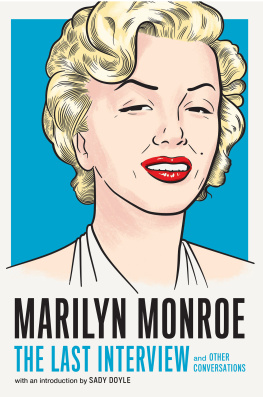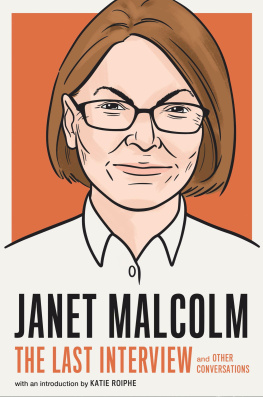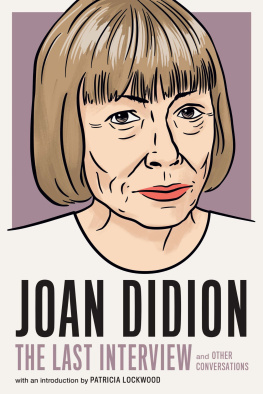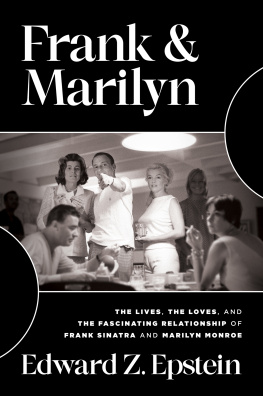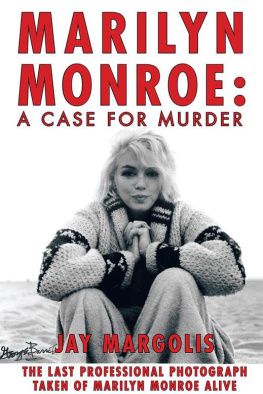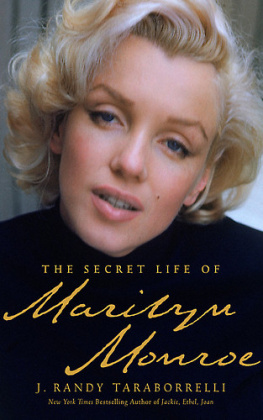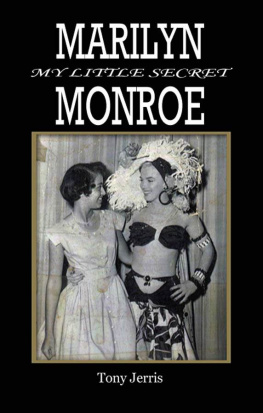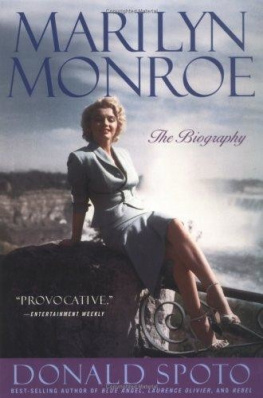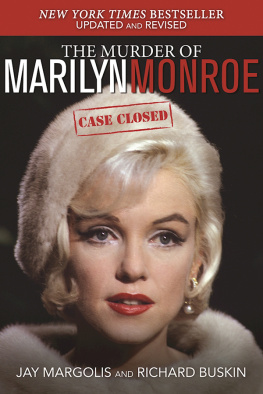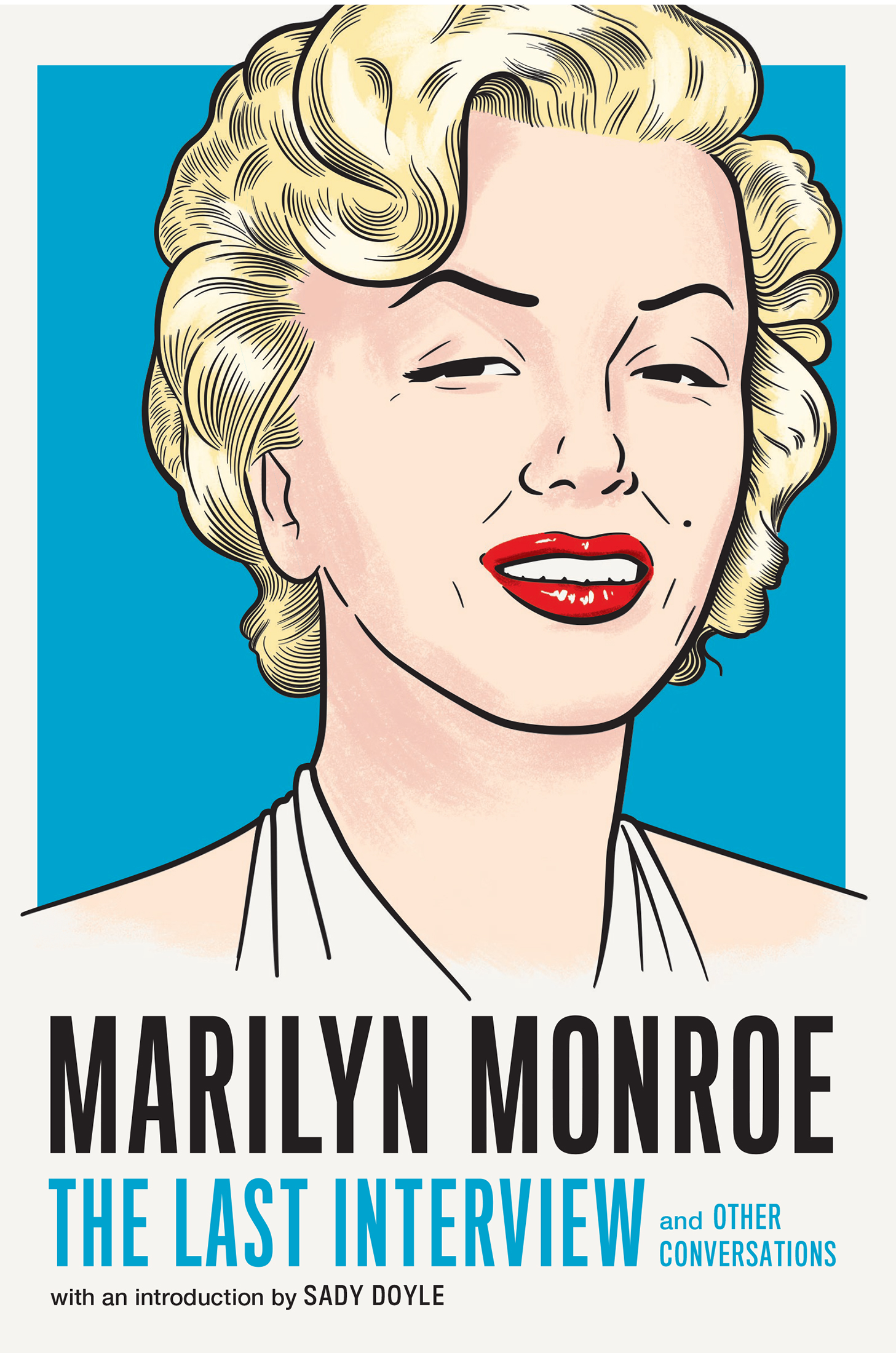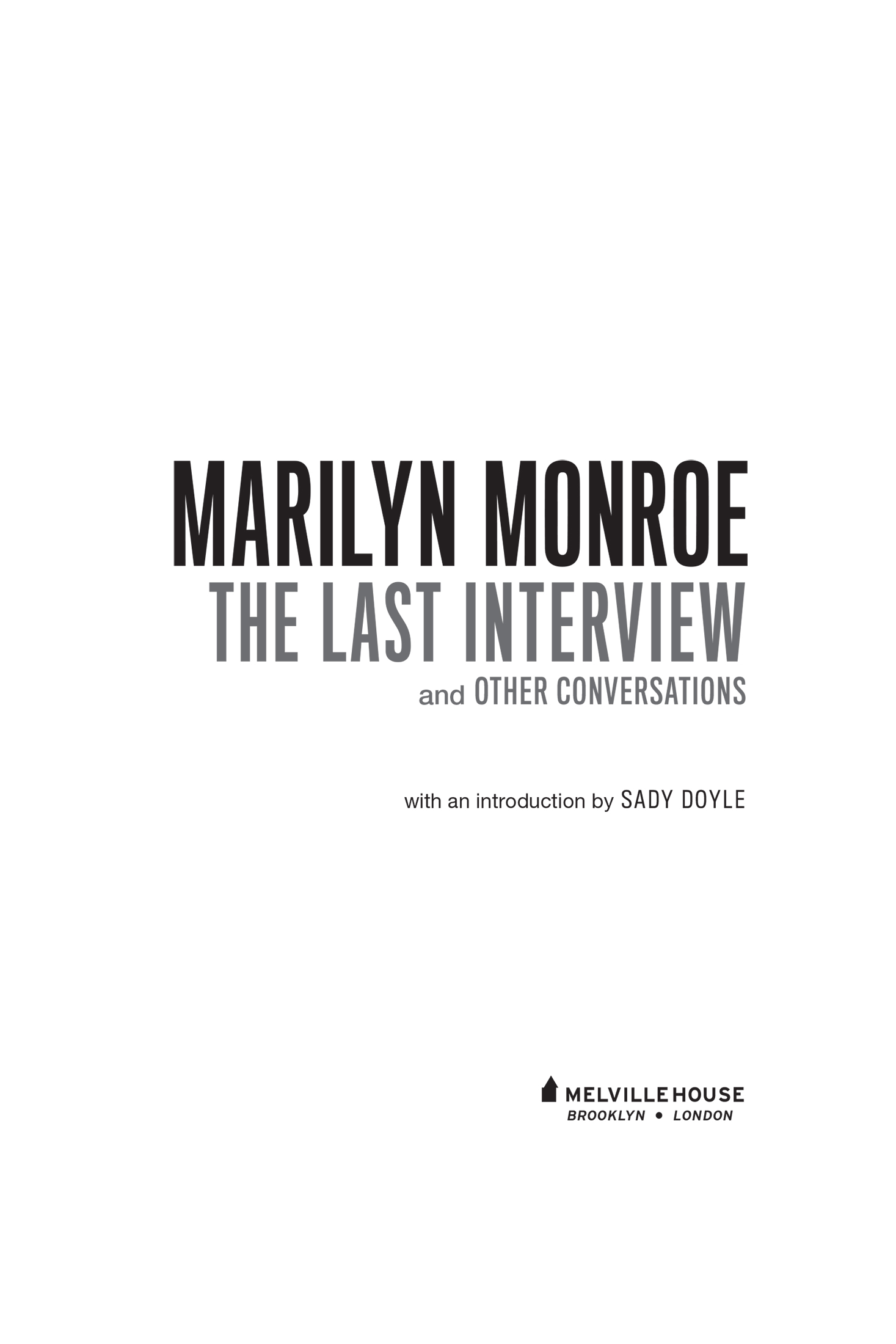Conversation with William J. Weatherby
INTRODUCTION
SADY DOYLE
I always see that in interviews, Marilyn Monroe once said, mid-interview. The questions demand certain answers and make you seem a certain kind of person. The questions often tell more about the interviewer than the answers do about me.
It is not new to say that Marilyn Monroe spent her life, and her afterlife, as a projection of other peoples fantasies. We told [everybody] what the deal was, one of the Hollywood publicity agents who launched her told the Saturday Evening Post in 1956. We said, We think this girl has a great future; shes beautiful, her chassis is great, and are you interested? Each guy had his own idea of what he wanted, and he let his imagination play upon her. This is the way such things get done.
The men in question imagined Marilyn into being the midcenturys most famous sex symbol; a deeply serious actress who was pilloried for taking acting classes; and a spectacularly funny comedian who never got credit for being in on the joke, even as she wrote all her own best lines. (Several are included here. On the fake studio backstory that she had been discovered while working as a babysitter, she said that youd think that they would have used a little more imagination and have had me at least a daddy sitter; of her early pinup photos, which had her posing by the ocean, she noted that you looked at those pictures and you didnt see much ocean, but you saw a lot of me.) Monroe was so effortlessly quotable that, decades after her death, the Fake Viral Marilyn Monroe Quote has become a social plague. Anything at the intersection of empowering and girlyif you cant handle me at my worst, you dont deserve me at my best; give a girl the right shoes and she can conquer the world; its better to be absolutely ridiculous than absolutely boring; and so onwinds up attributed to her and slapped up on Instagram after being photoshopped over a smiling picture of her face.
Marilyn Monroe was a sharp observer of her own persona, and surely she would see the irony: the empowering, quasi-feminist Marilyn Monroe of so many Pinterest boards is just another projected fantasy, no more accurate than the dumb blonde or the obliging sexpot. Shes famous for things she never said, after a lifetime of being denied the right to speak for herself.
The extent to which Marilyn Monroe was defined by the gaze of others is apparent throughout this book. Monroewhose fame predates our current mania for the celebrity Q and A format, though she was no stranger to the paparazzi pile-on with its bulbs flashing and microphones being thrust in her faceis presented to us mostly through long profiles. The reporter is always given the chance to editorialize and tell us what he thinks of her; hes always a main character in the story, even if the character hes portraying always seems to be guy who flirted with Marilyn Monroe.
The basics of Monroes persona were evident from the beginning. We first meet her in a 1951 Colliers profile by Robert Cahn, which gives her exact weight and measurements before bothering to quote her, and calls her the standard Hollywood Blonde, traditionally equipped with automatic batting eyelashes, a vague smile that seems to include everybody, and a head filled with sawdust.
Yet even then, there was discomfort in the characterizationa sense that, as one friend told Cahn, Marilyns soul just doesnt fit her body. Sure, there was tragedy; Monroe, born Norma Jean Mortenson, was the daughter of a mentally ill single mother, and was effectively orphaned when her mother was declared an unfit parent. She was passed among many foster homes; neglected, abandoned, and sexually abused by not one, but several of the men who had her in their care. The men who looked at the adult Marilyn often found her damage titillating: Her natural beauty plus her inferiority complex gave her a look of mystery, says the man who shot her screen test. The one thing better than a beautiful girl was a beautiful, sad girl who might greet you as a savior.
Far more threatening was the fact that Marilyn Monroe was smart. Even when barely cared for and tossed around between abusive homes, Norma Jean won writing prizes at school. She performed so well academically that she was allowed to skip seventh grade. One of the key scandals of her very scandalous careerand if you doubt me, consider that it comes up multiple times, just in this book alonewas the fact that she said she wanted to star as Grushenka in The Brothers Karamazov, and thereby admitted that she had read The Brothers Karamazov, and thereby, perhaps even more damningly, admitted that she could read.
Monroe knew the performance expected of herany girl who resents [being whistled at] should live on a desert island, she said, disempoweringly, to Motion Picture Magazine in 1954but her intelligence kept bumping up against the limits of her role until she left Los Angeles to take classes at The Actors Studio in New York. She began showing up in public wearing glasses, tucking her hair back in a ponytail, and reading books. All of the industrys contempt for her came gushing out at once.
It is brutal to read the things Monroes male colleagues said about her. Shes sincerely trying to improve herself, Some Like It Hot and The Seven Year Itch director Billy Wilder told the

